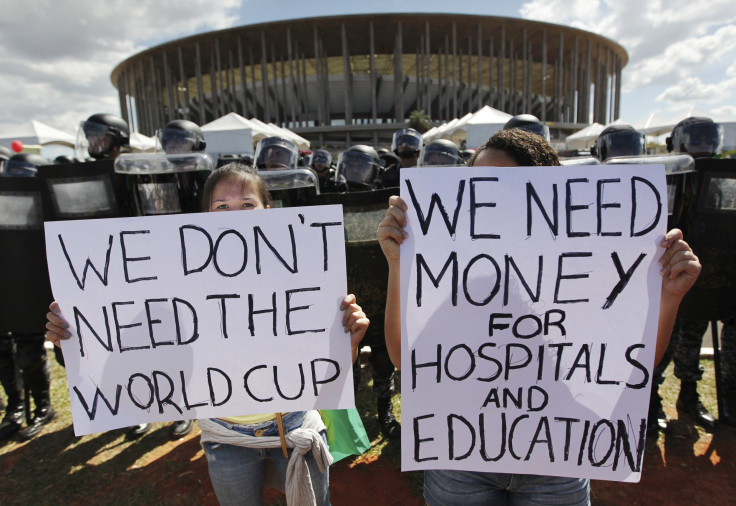Brazil Sues FIFA Over Soccer World Cup Costs

In the latest episode of the 2014 World Cup saga, Brazilian prosecutors are seeking an injunction to block the use of public funds for temporary infrastructure at World Cup stadiums located throughout Brazil. Structures like tents, cabling and communication equipment for broadcasters offer no long-term benefit to society, the prosecutors argue, and therefore they should be paid for by the Fédération Internationale of Football Associations, the world soccer governing body.
If successful, the injunction could save Brazil almost 1.2 billion reals ($540 million) in taxpayer money, according to the statement released on Friday by the Procuradoria Geral da República (public prosecutor’s office, or PGR, the equivalent of the U.S. attorney general). Brazil is not served by these expenditures for a private event, they argue, saying: "What is the public interest in paying for these services, if FIFA will be the only holder of ... [their] rights and sells them at millionaire prices?"
Brazil is spending about $3.5 billion to build or refurbish 12 stadiums for the tournament, which many Brazilians think should have been spent on other things, like health care and education. The public outrage propelled many to the streets in June and July, leading to the largest public demonstrations Brazil has ever seen.
Since then, the financing of the World Cup has come under great scrutiny. Aside from the prosecutor’s lawsuit, the six cities that hosted the Confederations Cup soccer tournament in June are also separately suing to get back 230 million reals ($105 million) spent on temporary structures for the event. The Brazilian Supreme Court has yet to rule on the lawsuit.
FIFA replied that “liabilities related to complementary structures were clearly stated in contracts” signed by the stadium owners in 2007. It added that the local organizing committees were responsible for several of the temporary structures, as well as hospitality, commercial display areas, food concessions and merchandising.
“In order to further reduce the investment made by the stadium owners in the complementary structures, the local organizing committees and FIFA are reviewing all of the requirements, as they did in February 2013 for the FIFA Confederations Cup, when there was a significant decrease in scope,” read the statement.
© Copyright IBTimes 2024. All rights reserved.





















